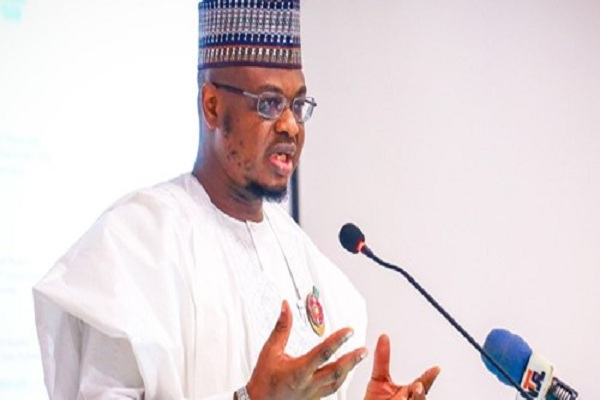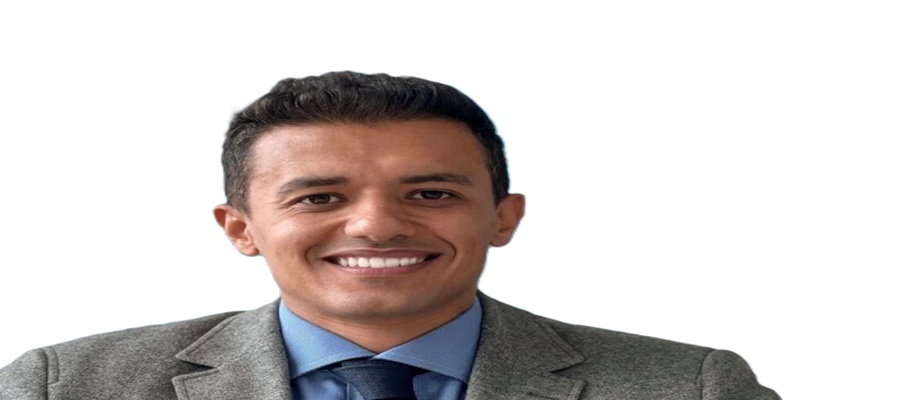Telecom
Broadband: Pantami, Danbatta Assure of FG’s Plans to Bridge Infrastructure Deficit

The Nigerian government has reassured of its commitment to ensure pervasive and ubiquitous broadband penetration in the country.

Therefore, the ongoing policy directions and regulatory measures being put in place by the Nigerian Government towards bridging identified broadband infrastructure gaps shall be sustained in order to facilitate increased access to the Internet by citizens across the country.
Prof. Isa Ali Ibrahim Pantami, Minister of Communications and Digital Economy, and Prof. Umar Garba Danbatta, Executive Vice Chairman of the Nigerian Communications Commission (NCC), gave the assurance in their presentations during the recently-concluded virtual African Internet Governance Forum 2021 (vAFIGF2021).
The three-day annual forum which held in-person and virtually, was organised with the theme: “Advancing Digital Transformation in Africa in the Face of Crisis”, and hosted by the Nigerian government.
The forum was attended by many stakeholders within the African Information and Communication Technology (ICT) ecosystem.
Pantami, who was represented at the forum by a Director at NCC, who doubles as Adviser to the Minister on Technical Matters, Prof. Sahalu Balarabe Junaidu, said the objective of the forum was to harness digital technology and innovation, transform societies and economies, and eradicate poverty for social and economic development in the Continent.
The Minister said, with the challenges thrown up by the outbreak of COVID-19 pandemic, the demand for Internet services has increased dramatically. He called on African citizens to access the broadband/internet services to carry out their personal and official task more effectively and effectively.
“The COVID-19 pandemic has accelerated the increased need to embrace the digital culture. So, as Africans, one of the ways by which we can respond to the challenge thrown by the pandemic is to accelerate our digital transformation,” he said.
Pantami explained that the digital transformation strategy for Africa should be established on key foundational pillars which include an enabling environment, policy regulation, digital infrastructure, digital skills and human capacity, as well as digital innovation, and entrepreneurship.
He said critical sectors such as digital trade and financial services, digital government, digital education, digital health, and digital agriculture, are also underlining pillars of the transformation.
Additionally, he said the drivers of digital transformation include digital content and applications, digital identification, emerging technology, cyber security, privacy and personal data protection, as well as research and development.
Pantami recalled that Internet usage in sub-Saharan Africa is still not encouraging, according to report by the International Finance Corporation ( IFC ) and World Bank.
However, the Minister asserted that Nigeria, with its current over 140 million Internet users, has one of the largest subscriptions in the sub-region.
The Minister said the various policies, including the National Digital Economy Policy and Strategy (2020-2030), and the Nigerian National Broadband Plan (NNBP) 2020-2025, emplaced to address infrastructure challenges and enhance the country’s migration to a more robust digital economy, will also ensure that more citizens are able to have access to the Internet in the coming years.
He mentioned the recent successful auction of 3.5 gigahertz (GHz) spectrum band for the scheduled deployment of Fifth Generation (5G) networks as another important policy and strategic step taken by the Nigerian government to boost broadband penetration in the country.
Pantami also listed the enforcement and implementation of the National Cyber Security Policy and Strategy 2021, and the review of the Cybercrimes Act of 2015 to build an inclusive Internet governance ecosystem and boost digital cooperation, as well as the ongoing linking of citizens National identification Number (NINs) with the Subscriber Identification Module (SIM) as worthy state actions that will yield great benefits.
Other initiatives cited by the Minister include the ongoing effort to address high Right of Way (RoW) charges, tackling multiple taxation in the ecosystem, and increasing stakeholder collaboration.
Meanwhile, the Director, New Media and Information Security, NCC, Dr. Al-Hassan Haru, who represented Danbatta at the forum, reiterated the Commission’s commitment to ensuring broadband penetration through stimulating continuous roll-out of broadband infrastructure.
He said the Commission is well positioned to drive government policy direction to tackle digital infrastructure deficit in the telecoms sector, as well as to explore necessary options to improve the nation’s digital ecosystem.
“The future is digital, and we should be committed to supporting and collaborating with African countries to maximise opportunities inherent in digital technologies. We should also be ready to avoid the pitfalls by instituting appropriate regulations as we are doing in NCC,” he added.
Other stakeholders at the event included eminent policy experts, leading technology managers from the private sector, representatives of governmental organisations, civil society organisations, non-governmental organisations, the academia, and Internet end-users, who actively participated in the discourses during the three-day forum.
Telecom
Spacecoin Secures Licenses to Roll Out Satellite Connectivity in Nigeria, Kenya

Spacecoin, US-based, has announced the signing of recent agreements with local authorities and operators to launch satellite connectivity pilot projects in Africa.

The initiatives, focused on Kenya and Nigeria, aim to serve areas where terrestrial networks remain limited or unavailable.
n Kenya, Spacecoin has obtained a transmission license from the Communications Authority, allowing it to test satellite-based solutions for connectivity and Internet of Things (IoT) monitoring, particularly in rural and peri-urban areas with limited internet access.
According to the Kenyan regulator, internet penetration remains below 50% of the population, despite mobile penetration exceeding 130%.
In parallel, the company is continuing operations in Nigeria under an existing license issued by the Nigerian Communications Commission (NCC).
This authorization supports initiatives aimed at delivering affordable broadband connectivity to isolated and underserved communities.
Spacecoin’s approach is based on a decentralized satellite network using nanosatellites in low Earth orbit (LEO).
Combined with blockchain-based protocols, this architecture is intended to offer more flexible and cost-effective connectivity services than traditional networks, while also enabling the integration of IoT solutions for a range of uses, from smart agriculture to infrastructure monitoring.
These projects are part of a broader strategy to help narrow Africa’s digital divide, where a significant share of the population still lacks access to reliable internet services.
Satellite technology is increasingly viewed as a complement to terrestrial infrastructure, particularly in hard-to-reach areas where deployment costs and geographic constraints remain high.
Beyond Africa, Spacecoin is also running pilot projects in Asia, working with local partners to test the viability of its model across different regulatory and geographic environments.
According to the company’s management, growing interest from regulators reflects a shift toward solutions capable of reaching populations that have long been excluded from internet access.
Telecom
AVEVA Names Khaled Salah Vice President for Africa to Drive Growth

AVEVA, a global leader in industrial software, driving digital transformation and sustainability, today announces the appointment of Khaled Salah, 37 years old, as Vice President of Africa.

Khaled Salah
In this new role, he will be responsible for about 30 employees to ensure the successful implementation of AVEVA’s growth strategy. Khaled Salah will report directly to Jesus Hernandez, SVP of the EMEA region.
A 15-years + career across different industries and domains
With a MBA in management from the Warwick business school, UK, and a master’s degree in engineering from Ain Shams university in Egypt, Khaled Salah is an active advocate for driving sustainable progress in the industrial sector. With Sustainability in mind, Khaled is keen on making a positive business impact, while fostering progress for people and the planet.
He started his career at Schneider Electric, in 2013 in the global supply chain and evolved through various roles such as Europe procurement and supply chain strategy Manager, and Global Commercial strategy Director for the industrial automation business. Khaled Salah has developed a strategic understanding of all those fields.
After 12 years in Schneider Electric, Khaled joined AVEVA in 2022 to lead AVEVA and Schneider Electric global strategic partnership, across all industries managing a team of 30 people.
He has led the introduction of new AVEVA software solutions to initiate and develop significant growth areas across all Schneider Electric verticals.
Ambitious plans for AVEVA in Africa
In addition to his current role as AVEVA and Schneider Electric partnership Vice-President, Khaled now takes over the management of AVEVA’s activities in Africa.
Jesus Hernandez, SVP of the EMEA region says: “Africa is a strategic region for AVEVA. In this major industrial market, customers, world leaders in the fields of Energy, Metal & Mining, Chemicals, and Water, are looking for AVEVA’s expertise to accelerate and drive their digital transformation and sustainability strategies, as well as their energy transition projects.
“Khaled Salah’s qualities of leadership in a global environment will benefit his team spread across 12 countries including Algeria, Morocco, Egypt, Kenya, Nigeria, and South Africa.”
Motivated by the prospect of capitalizing on the talent of his team to strengthen AVEVA’s presence in Africa in the years to come, Khaled Salah says: “Helping my team realize their professional potential is close to my heart.
“We will work together to support and accelerate the digital transformation of industries in Africa, in particular through CONNECT, our industrial intelligence platform, with the support of our ecosystem of partners. »
Telecom
Google Report: Nigeria Leads Global AI Adoption in Learning, Entrepreneurship

A Google-Ipsos report reveals Nigerians topping global AI usage at 88%, surpassing the 62% worldwide average, with sharp rises in education and business applications.

“Our Life with AI: Helpfulness in the hands of more people” shows 93% of Nigerians using AI for learning complex topics versus 74% globally, 91% for work assistance, and 80% for new ventures—nearly double the 42% global rate.
Taiwo Kola-Ogunlade, Google’s West Africa Communications Manager, stated: “Nigerians are creatively using AI to unlock opportunities for learning, growth, and economic empowerment, shaping their future with technology.”
Key findings highlight 91% viewing AI positively for learning access, 95% expecting benefits for students and educators, and strong optimism—80% excited versus 20% concerned, compared to global 53%-46% split. Frequent users show 90% excitement

 E-Financial2 days ago
E-Financial2 days agoHere Are Nigerian Banks That Have Secured Their Licences

 E-Financial2 days ago
E-Financial2 days agoZenith Bank Top Nigerian Bank Pick Ahead of GTCO, AccessCorp

 Telecom2 days ago
Telecom2 days agoMTN CEO Toriola Hails Nigeria’s Telecom Transformation at MIPAD

 News2 days ago
News2 days agoICPC Charges Ozekhome with Forgery, Corruption Over London Property

 E-Financial2 days ago
E-Financial2 days agoNigeria Processed $92.1Bn Crypto Transactions in 12 Months — PwC

 E-Financial2 days ago
E-Financial2 days agoHow Crypto Criminals Stole $700m from People – often Using Age-Old Tricks

 General News1 day ago
General News1 day agoCybersecurity Firm Detects a Wave of Crypto Phishing Following BlockFi Bankruptcy

 Telecom2 days ago
Telecom2 days agoLebara Launches Agent Registration Portal
























